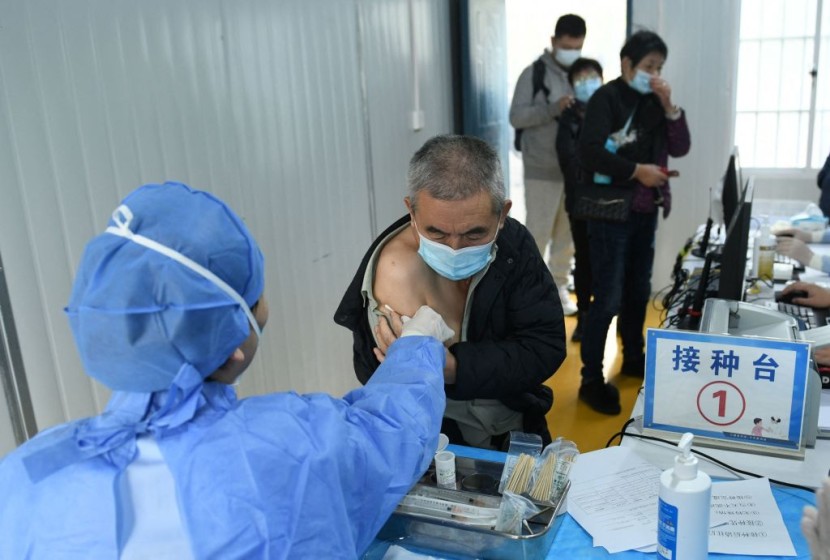
China reversed its "zero-COVID" policy on Wednesday, putting it on track to living with the respiratory ailment following massive protests in several cities in recent weeks.
A fundamental component of government attempts to suppress even modest epidemics, mass PCR testing, will now be largely abandoned, and those who are asymptomatic or have mild diseases will be permitted to quarantine at home under the new China COVID-19 rules, according to a Nikkei Asia story.
Furthermore, the new regulations limit the authority of local officials to unilaterally lock down areas and halt enterprises, which has fuelled popular resentment and hurt the economy.
According to National Health Commission (NHC) official Li Bin, the changes "are aimed at maximizing health and safety while minimizing the impact of the pandemic on economic and social development."
But another NHC official, Liang Wannian, stressed that the adjustments do not entail a complete relaxation or "giving up" on pandemic measures to control China COVID-19 cases.
China Not Reopening Yet
China's leading public health expert, Dr. Yanzhong Huang, head of the Center for Global Health Studies at Seton Hall University, echoed this point on China COVID-19 rules.
According to an AP News report, the expert noted that the fresh measures constitute a departure from the objectives of the "zero COVID" policy. However, they are "not a roadmap to reopening."
Although China is not prepared for such a drastic change, he warned that the implementation of these restrictions might spark dynamics that drive the fast increase of China COVID-19 cases .
As schools stop unexpectedly, millions of people are confined to their homes, and economic development slows, public discontent is mounting.
Despite a fresh wave of infections that began in October, the adjustments have been implemented. The government announced 25,231 additional cases on Wednesday, including 20,912 instances with no symptoms.
The Xi administration has used "zero COVID" as evidence of China's system's supremacy over the US and Western nations. When compared to the United States estimate of 1.1 million deaths caused by the epidemic, China's official death toll stands at 5,235.
Read Also : Scientists May Have Figured Out a Way To Detect Elusive Dark Matter Using Quantum Computers
Experts Warn on Possible Consequences
Although there is still a lot of uncertainty about how the next few weeks and months will play out, experts believe China has not done enough to prepare, including increasing the vaccination rate for the elderly, expanding hospital capacity for emergency and intensive care, and storing antiviral drugs.
Experts worry that even a small number of serious infections among susceptible and under-vaccinated populations like the elderly might overload hospitals if China COVID-19 cases increase throughout its 1.4 billion people, CNN reported.
Since the worldwide vaccination drive and the appearance of the Omicron, a milder COVID-19 subvariant, health professionals have criticized China's devotion to "zero COVID" and emphasized the unfeasibility of the approach, which aimed to utilize lockdowns, quarantines, and mass testing and monitoring to suppress a viral disease.
However, when certain limitations are eased in what seems to be a hasty shift after years of attention on rigorously managing the virus, experts warn that change may be on the horizon before China has made the measures its health authorities have acknowledged are required to be included in the China COVID-19 rules.
According to Ben Cowling, a professor of epidemiology at the University of Hong Kong, an epidemic that is "uncontrolled" seriously threatens the healthcare system in terms of controlling the small number of severe COVID-19 infections and causing "collateral damage" to individuals with other comorbidities.
Cowling said it was "impossible to forecast" how rapidly diseases could spread over China, even with loosening restrictions, since some individuals would modify their activities, such as spending more time at home.
Beijing announced a list of China COVID-19 rules to strengthen health systems against COVID-19 last month, including directions to enhance elderly immunization, stockpile antiviral medications, and medical devices, and improve critical care capacity, which experts say take some time and are best done before an epidemic.
Read also: Brussels Bombing: Trial Begins for 2016 Suicide Attacks That Killed 32 People, Injured 300 Others
© 2025 HNGN, All rights reserved. Do not reproduce without permission.








